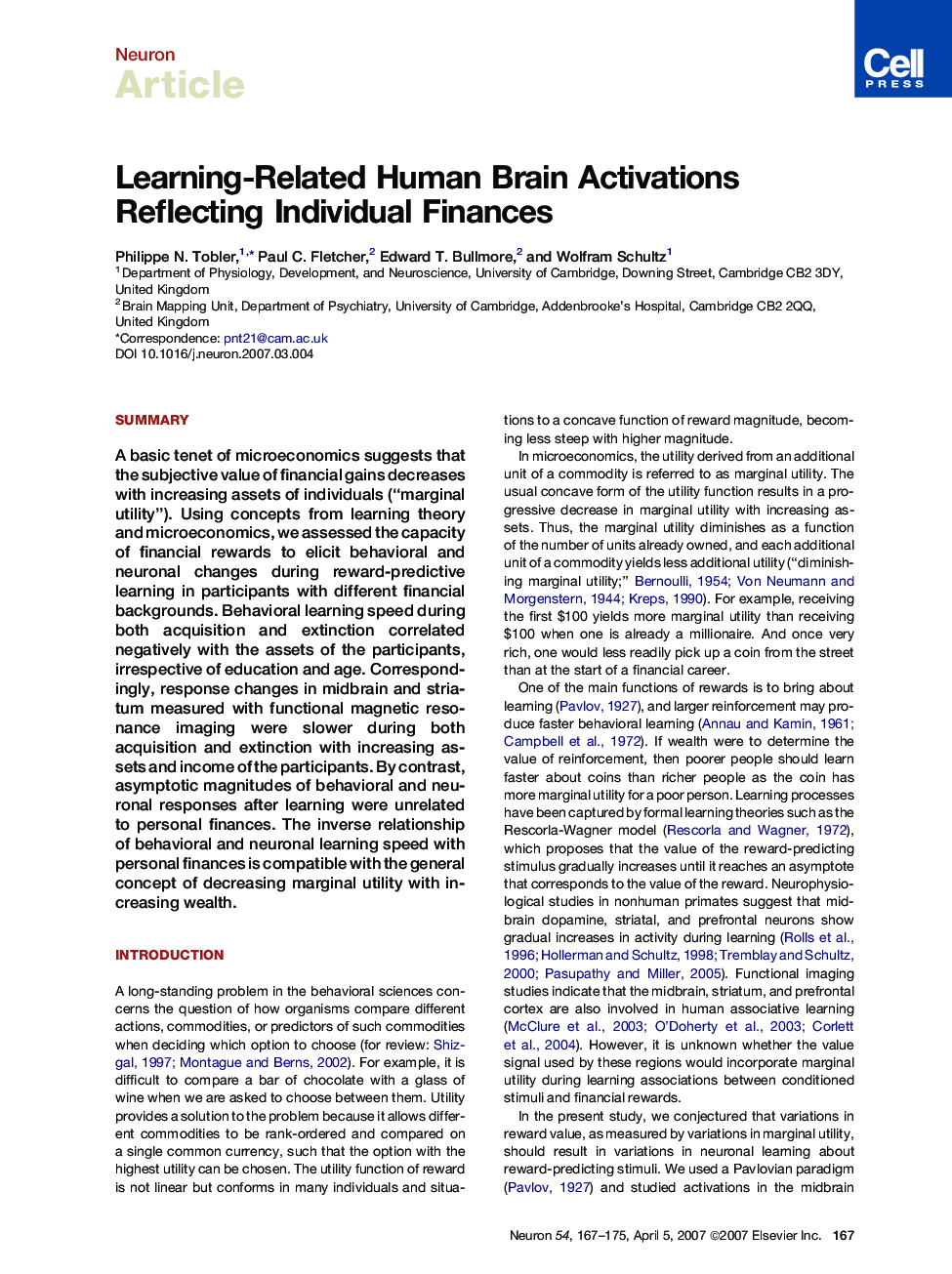| Article ID | Journal | Published Year | Pages | File Type |
|---|---|---|---|---|
| 4322677 | Neuron | 2007 | 9 Pages |
SummaryA basic tenet of microeconomics suggests that the subjective value of financial gains decreases with increasing assets of individuals (“marginal utility”). Using concepts from learning theory and microeconomics, we assessed the capacity of financial rewards to elicit behavioral and neuronal changes during reward-predictive learning in participants with different financial backgrounds. Behavioral learning speed during both acquisition and extinction correlated negatively with the assets of the participants, irrespective of education and age. Correspondingly, response changes in midbrain and striatum measured with functional magnetic resonance imaging were slower during both acquisition and extinction with increasing assets and income of the participants. By contrast, asymptotic magnitudes of behavioral and neuronal responses after learning were unrelated to personal finances. The inverse relationship of behavioral and neuronal learning speed with personal finances is compatible with the general concept of decreasing marginal utility with increasing wealth.
